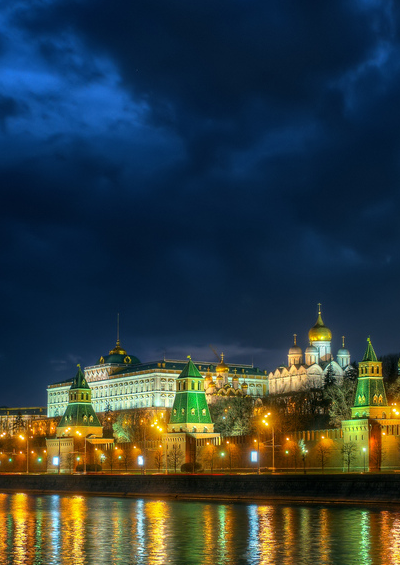Uncomfortable Parallels: Hitler and Putin
Artfully mixing the toxic spirit of national and personal humiliation.
March 21, 2015

Hopefully, history will not repeat itself. But in view of recent events in Ukraine, especially the annexation of Crimea, one is reminded of some ominous parallels nearly 80 years ago, when Adolf Hitler annexed Austria.
That annexation in 1938 bears close resemblance to Vladimir Putin’s annexation of Crimea in 2014:
■ In both cases, the alleged repression of a shared ethnic group was used to foment unrest and rally support for the takeover agenda.
■ In both cases, a carefully stage-managed popular referendum was held and, in both cases, its ultimate outcome was strongly in favor of annexation.
It almost seems that Putin took a page out of Hitler’s book when he described Crimea’s annexation as a “homecoming.” Hitler had welcomed Austria “home” in the same way (Heim ins Reich).
National and personal humiliation
These remarkable similarities invite a comparative look at the principals, Vladimir Putin in 2014 and Adolf Hitler in 1938.
Putin had served the Soviet Union as a KGB officer in East Germany around the time of the collapse of the Soviet Union. It must have been deeply humiliating to him to witness the dissolution of the Soviet republics and Soviet dominated countries and their quick alignment with the West.
Thirteen countries around Russia, from Bulgaria to Estonia, with a combined population of 120 million, not only joined the European Union, but also became members of NATO.
The sudden presence of these two Western organizations in what Russia, for some time, had regarded as its “sphere” must have appeared aggressive and deeply humiliating to Vladimir Putin.
The source of Adolf Hitler’s comparable humiliation was the Treaty of Versailles ending WWI. It left Germany with crippling reparation payments and restrictions on its sovereignty.
Just as Putin did eight decades later, Hitler managed to translate his personal sense of humiliation into national sentiment, gaining a large popular following. Both men derived a mandate to redress national humiliation from their high approval ratings.
Similar disdain for Western culture
In addition, the muted Western response appears to have affirmed each man’s sense of personal toughness and self-discipline. By extension, both men were also keen to show their disdain for the decadence in Western culture.
Nazi Germany persecuted “decadent” arts and artists, including American Jazz artists. Putin’s Russia focuses on homophobic laws and engaging in deliberately offensive political rhetoric styled as an explicit reaction to the West’s supposed lax standards of morality.
Despite important differences, stylistically both Hitler and Putin:
■ share a perceived need to redress national humiliation
■ project tough-guy self images
■ rely on strong popular support and the belief in Western decadence and softness.
The success with Austria and Crimea encouraged both Hitler and Putin to engage in further expansionist adventures.
At this point, however, it is important to abandon the search for any further comparisons – if only because this could be insulting to Mr. Putin, who still has many choices ahead of him.
It seems clear, however, that Putin is prepared to keep challenging the West as long as he can do so successfully. He observes declining European defense budgets and intensifying debates among Europeans over the justification of economic sanctions imposed on Russia. He knows he can sow doubts easily in some nations, for very little money.
America’s cold warring is over
Many Europeans seem to still cling to the Cold War notion that military matters are better left to the Americans.
The United States, while the senior member of NATO, evidently finds going to war over some small piece of Eastern Europe that does not pose a direct threat to U.S. national security very unpopular.
This is not surprising since Europe, in the meantime, has essentially caught up economically with the United States. European defense therefore is no longer a question of means, but a question of will.
It is, of course, conceivable that Russia’s new aggressiveness will have the unifying effect in Europe that has been missing lately.
Europe is far more directly affected by Russian expansionism than is the United States. Europe must therefore step up to the plate.
The proverbial line must be drawn, even though this is more easily said than done in a world of hybrid war and non-linear strategies.
At the same time, Mr. Putin must be persuaded and convinced that he can be secure and respected — within his own borders.
Takeaways
Just like Putin eight decades later, Hitler transferred his personal sense of humiliation into national sentiment.
Putin is prepared to keep challenging the West as long as he can do so successfully.
Mr. Putin must be persuaded that he can remain secure and respected within his own borders without expanding them.
